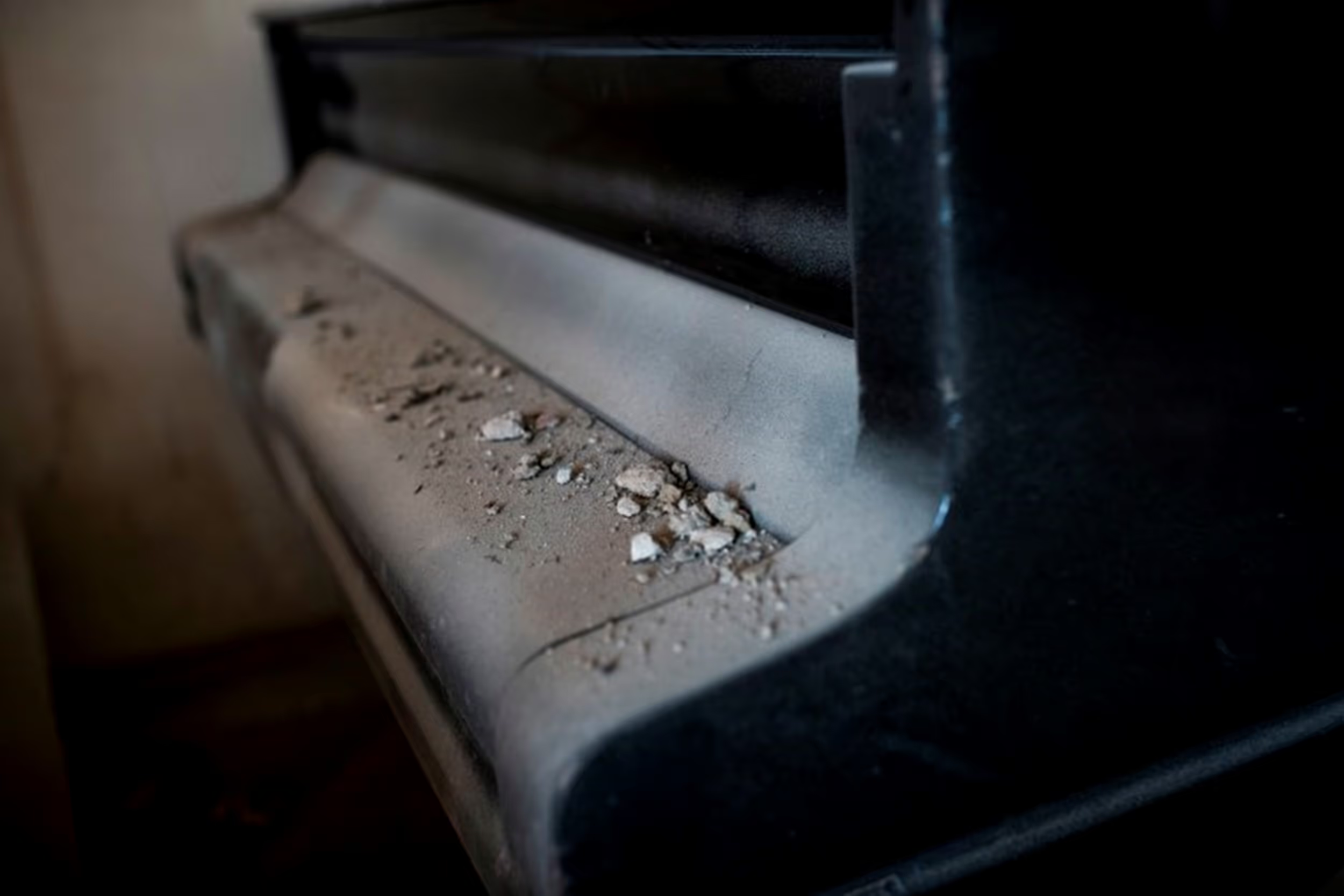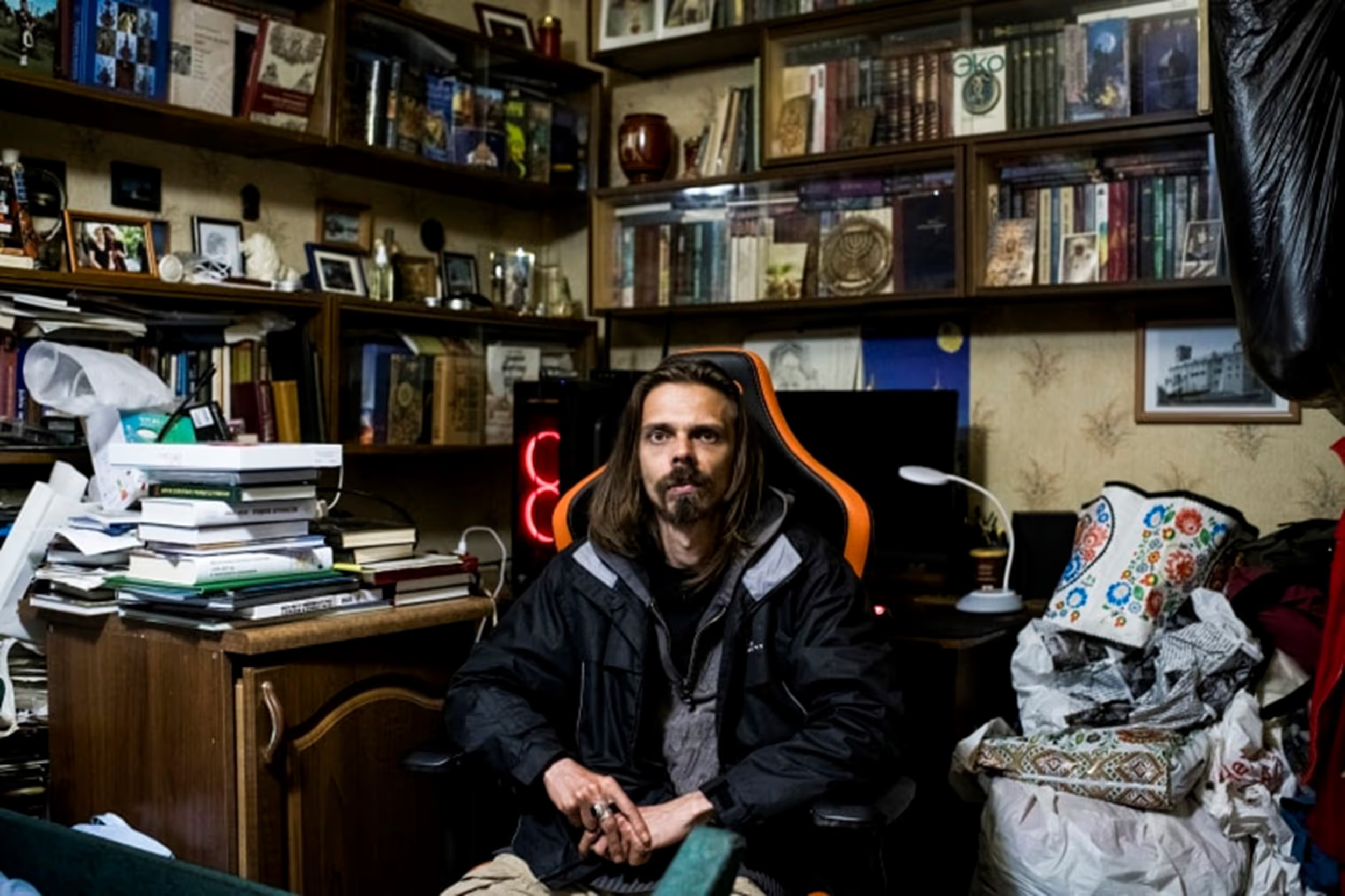.png)
Russian troops burned down a museum in the town of Ivankiv that housed a collection of paintings by the renowned Ukrainian folk artist Maria Prymachenko, who was an inspiration to Pablo Picasso. The House of Culture in Lozova was razed by a Russian missile. Other theaters, churches, monuments and libraries have been destroyed.
Ukraine’s Minister of Culture Oleksandr Tkachenko said his office has recorded more than350 “Russian war crimes against cultural heritage” as of May 19. And UNESCO, the United Nations’ cultural agency, has verified damage to 133 sites, although that number is likely to be much higher given the limited access to information in occupied territories —such as the city of Mariupol, where Ukraine has accused Russian forces of seizing more than 2,000 pieces of art.
“What is in the minds of people who choose such targets?” Ukrainian President Volodymyr Zelensky said after the attack on the Lozova House of Culture. “Absolute evil, absolute stupidity.”
Culture in the crosshairs
Attacks on cultural property are not uncommon during wartime, said Richard Kurin, a cultural anthropologist and the founder of the Smithsonian Cultural Rescue Initiative.
“In conflict, you get situations where people want to erase someone else’s culture,” Kurin said.
That was the case during the Yugoslav Wars of the 1990s, when Serbian forces destroyed more than two million books at Sarajevo’s National Library and bombarded historic and religious sites in the Old Town of Dubrovnik, Croatia. Cultural relics including the Great Buddhas of Bamiyan, iconic6th and 7th century statues, were obliterated by the Taliban in 2001 in Afghanistan; Iraq’s 10th-century al-Askari Mosque, an important holy site for Shiite Muslims, was bombed by Al Qaeda in 2006; and dozens of cultural sites have been targeted in Syria’s ongoing civil war.

“It’s demoralizing to people because people’s culture is highly symbolic and it gives them a sense of identity and morale,” Kurin said. “If you think about what the Ukrainians are fighting for, a lot of it has to do with their being Ukrainian.”
For every piece of Ukrainian cultural property destroyed in a targeted attack, dozens more are being impacted by indiscriminate strikes, especially as Russia has targeted civilian areas.
Ukraine’s second largest city of Kharkiv, 25 miles from the Russian border, has been one of the most affected.
An assault on Kharkiv’s Freedom Square in the first few days of the war rippled throughout the city’s cultural center, damaging centuries-old buildings such as the 218-year-old Kharkiv National University, one of the country’s most famous universities, the opera house and the Derzhprom state industry building, currently on a UNESCO “tentative” list for consideration as a World Heritage site.

The shockwaves from that attack also blew out windows of nearby buildings, including the historic Kharkiv National University of Arts, destroying pieces of art, old photographs and more than 100 concert pianos — each worth tens of thousands of dollars.
“The majority of damage to cultural property has been through collateral damage and the way that the Russian Federation is fighting the conflict,” said Peter Stone, the president of Blue Shield, an international organization that works to protect cultural heritage from armed conflicts and natural disasters.
But whether the attacks are indiscriminate or targeted, Stone said Ukraine was at risk of losing irreplaceable cultural sites and artifacts that make up the fabric of Ukrainian identity. “At the end of the day, the damage has been done,” he said.
The race to save Ukrainian culture
When Russia invaded and annexed Crimea in 2014, Anton Bondarev, a Ukrainian archivist and historian, began to worry that something similar could happen in his hometown of Kharkiv.
Just incase, he started making digital copies of the building plans of historical structures in Kharkiv, including detailed information about the compositions and facades. His archive would serve as a blueprint to help restore any damage to the city’s centuries-old buildings.
“I was still in shock,” Bondarev said, recalling the first sounds of rocket strikes in late February. “We had bombing in World War II from the Nazis. And now we have bombing from Russia. This time is worse.
On Feb.24, Bondarev hurriedly transferred the archive he had been building to a USB flash drive and shoved it in his pocket before racing to the bomb shelter below his apartment building. He spent 50 days underground, never letting go of the flash drive.
“The Kharkiv legacy is in danger,” he said. “This is all part of Russia’s genocide of Ukrainian culture and national identity.”
Not all Ukrainians had the same foresight as Bondarev.
Very little was done in Ukraine to protect cultural property against the possibility of a Russian invasion, leaving museum directors, artists, historians and government workers rushing at the end of February to quickly stack sandbags around monuments and scrambling to find enough crates and protective materials to move valuable art pieces underground for safekeeping.
Thank you NBC news for the article
.png)
Contribute to your future, a Non Profit Organization and buy us a Coffee with 3 simple clicks and a minute of your time. Imagine what we can do together.
To thank you, we will call you personally.
This is the amount that will be distributed amongst the current shareholders.
Current Share Holders
1102/500,000